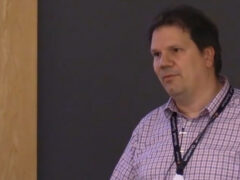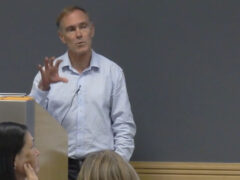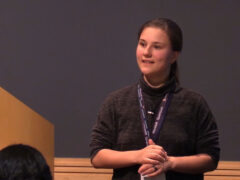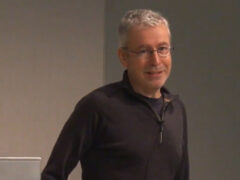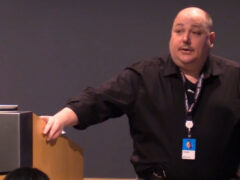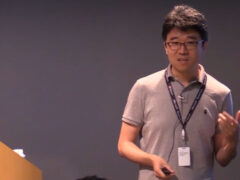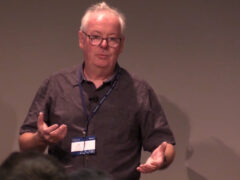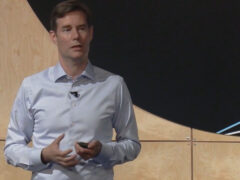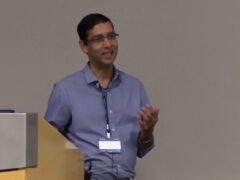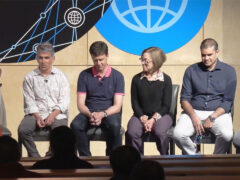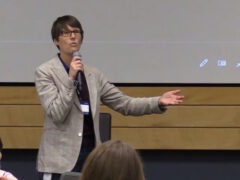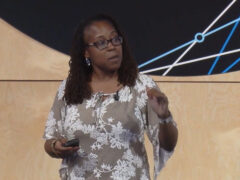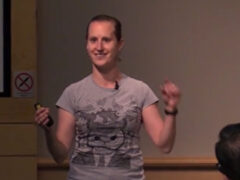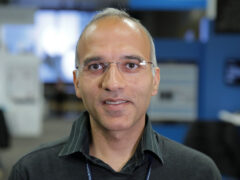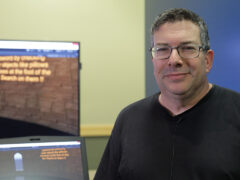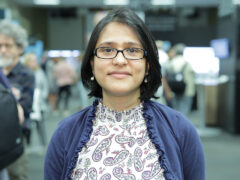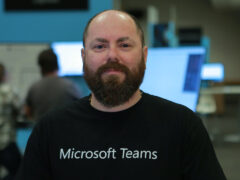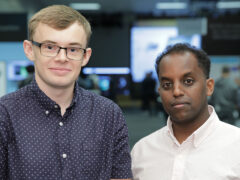Faculty Summit 2016 – Transport Protocols for Hyper-scale Networks
As Internet evolves, so must transport protocols and congestion control. Today’s dominant transport protocol, TCP, was designed primarily for wide area, wired network, and for throughput-sensitive traffic. As cloud-based services, mobile internet access, internet-of-things start sourcing or sinking majority of the internet traffic, new transport protocols and new ways of thinking about congestion control are needed. The workshop will bring together leading researchers to ponder many of these issues, including, but not limited to: – As data center networks continue to evolve and use ever-more exotic technologies (e.g. free space optics), do we need changes to transport protocols? – What is the right congestion control protocol for RDMA networks? – Can wide area networks be made lossless? Do we need to? – Do we need better transport protocols for mobile networks? – Today, majority of the Internet traffic is generated by, or sent to a handful of major players (Google, Netflix, Facebook etc.). Is TCP the right solution in this scenario? – Many of today’s applications are delay sensitive (e.g. collaborative office document editing). Do we need new transport protocols for such applications? – Edge computing (also known as fog computing) is being widely deployed, and will likely play a major role in internet-of-things ecosystem. What transport protocol innovation is needed in this space?
People
Chair: Jitu Padhye (opens in new tab), Microsoft Research
Speakers:
- Mohammad Alizadeh (opens in new tab), Massachusetts Institute of Technology
- Vishal Misra (opens in new tab), Columbia University | slides (opens in new tab)
- Keith Winstein (opens in new tab), Stanford University
- Date:
- Speakers:
- Jitu Padhye, Mohammad Alizadeh, Vishal Misra, Keith Weinstein
- Affiliation:
- Microsoft, Massachusetts Institute of Technology, Columbia University, Stanford University
-
-
Casey Anderson
-
-
Series: Microsoft Research Faculty Summit
-
-
Quantum Computing and Workforce, Curriculum, and Application Development: Case study
Speakers:- Krysta M. Svore,
- Martin Roetteler
-
-
-
-
Crowd, Cloud and the Future of Work: Updates from human AI computation
Speakers:- Besmira Nushi,
- Vani Mandava
-
-
-
-
-
Empowering People to Achieve More: How Useful a Concept is Productivity?
Speakers:- Brendan Murphy
-
-
Productivity in Software Development
Speakers:- Neel Sundaresan,
- Margaret-Anne Storey,
- Prem Kumar Devanbu
-
-
-
-
-
-
-
Accessible Virtual Reality
Speakers:- Eyal Ofek
-
Calendar.help: A Virtual Meeting Scheduling Assistant
Speakers:- Pamela Bhattacharya
-
Visual Studio IntelliCode
Speakers:- Mark Wilson-Thomas
-
Microsoft Teams: Collaborate with Any Researcher Anywhere
Speakers:- Jethro Seghers
-
Project Alava: Programming Webs of Microcontrollers
Speakers:- James Devine,
- Teddy Seyed
-
AI in PowerPoint
Speakers:- Kostas Seleskerov


